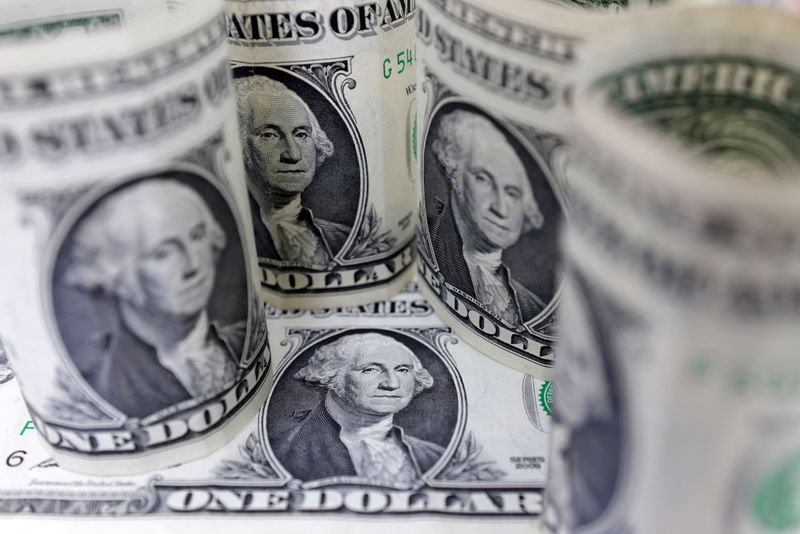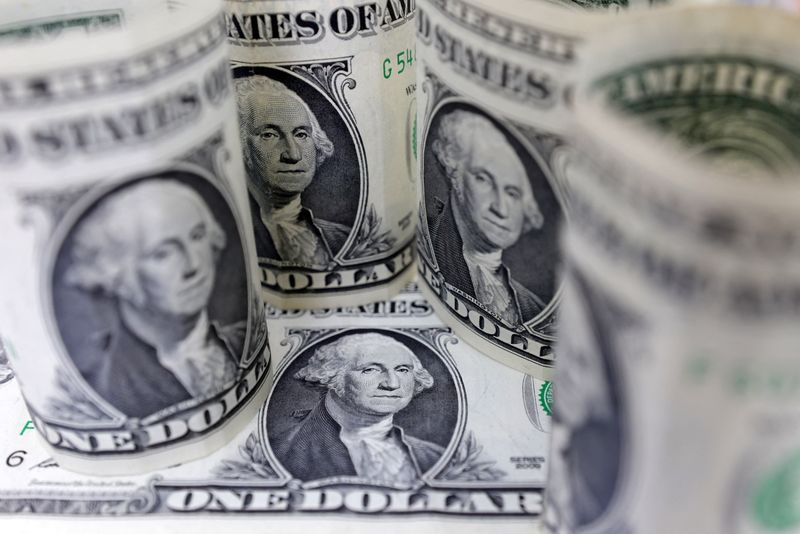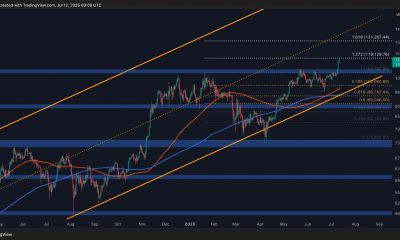Forex
Dollar rebounds against euro before Powell speech

By Karen Brettell
NEW YORK (Reuters) -The dollar rebounded from a 13-month low against the euro on Thursday before Federal Reserve Chair Jerome Powell is due to speak on Friday and as the greenback’s recent weakness was seen as being overdone.
The U.S. currency has fallen on concerns about a weakening economy and on expectations the Federal Reserve is close to cutting interest rates. But the extent of the weakness, and whether it will lead the U.S. central bank to cut rates by 25 or 50 basis points at its September meeting, remains in question.
The odds of a cut of 50 basis points or more rose after July’s employment report showed fewer than expected jobs gains and an unanticipated increase in the unemployment rate, though this pricing has faded as other data points to better growth.
“The dollar has been under a lot of pressure recently but I think it’s getting to a place where it’s quite a bit oversold,” said Brad Bechtel, global head of FX at Jefferies in New York.
“We’ve backed away a little bit from that sort of emergency place we got to after the payroll print, but the dollar seems to be pricing as if we’re still in that emergency state,” Bechtel said.
A mass unwind of carry trades, in which traders borrowed yen to finance U.S. asset purchases, added to market moves after the payrolls report and made the rate cut pricing more extreme.
Traders are now pricing in a 25% probability of a 50 basis point cut next month, down from 38% on Wednesday, and a 75% chance of a 25 basis point reduction, according to the CME Group’s (NASDAQ:) FedWatch Tool.
Traders will focus on Powell’s comments on Friday at the Kansas City Fed’s Jackson Hole, Wyoming, symposium for any new clues on the size of the expected September rate cut and whether subsequent cuts are likely at each meeting thereafter.
Powell may be reluctant to offer too much detail, however, with August’s jobs and inflation data due after his speech, but before the Sept. 17-18 meeting.
Minutes from the Fed’s July 30-31 meeting released on Wednesday showed that a “vast majority” of officials said a September cut was likely.
Philadelphia Fed President Patrick Harker said on Thursday he was on board with a September rate cut as long as the data performs as he expects it to and Boston Fed President Susan Collins also signaled her likely support.
Data on Thursday showed that the number of Americans filing new applications for unemployment benefits rose in the latest week, but the level still suggested a gradual cooling of the labor market remains intact.
It comes a day after revised data for the year through March showed that U.S. employers added far fewer jobs than originally reported.
With Europe and the United Kingdom also facing soft growth outlooks and central bank rate cuts, Bechtel said weakness in the dollar relative to their currencies may have run too far.
“There’s no real reason for any big outperformance on the euro side at this point. I would argue pretty similar in the UK,” he said. “At the end of the day, the Fed, the (European Central Bank) and the Bank of England are going to be in the same ballpark when it comes to their easing cycles.”
The was last up 0.38% at 101.50. It reached 100.92 on Wednesday, the lowest since Dec. 28. The euro fell 0.36% to $1.111. It hit $1.11735 on Wednesday, the highest since July 2023.
Data earlier on Thursday showed that euro zone business activity showed surprising strength in August despite firms raising prices, while euro zone negotiated wage growth slowed last quarter.
Sterling hit a 13-month high against the greenback following a report showing that British business activity accelerated this month and cost pressures eased to their weakest in over three years.
Sterling was last up 0.02% at $1.3093, after earlier reaching $1.3130. It is approaching the $1.3144 top reached in July 2023, which, if broken, would take it to the highest level since April 2022.
The dollar strengthened 0.65% to 146.2 Japanese yen.

Bank of Japan Governor Kazuo Ueda is expected to discuss the central bank’s decision last month to raise interest rates when he appears in parliament on Friday.
In cryptocurrencies, bitcoin fell 1.43% to $60,370.

 Forex3 years ago
Forex3 years agoForex Today: the dollar is gaining strength amid gloomy sentiment at the start of the Fed’s week

 Forex3 years ago
Forex3 years agoUnbiased review of Pocket Option broker

 Forex3 years ago
Forex3 years agoDollar to pound sterling exchange rate today: Pound plummeted to its lowest since 1985

 Forex3 years ago
Forex3 years agoHow is the Australian dollar doing today?

 Cryptocurrency3 years ago
Cryptocurrency3 years agoWhat happened in the crypto market – current events today

 World3 years ago
World3 years agoWhy are modern video games an art form?

 Commodities3 years ago
Commodities3 years agoCopper continues to fall in price on expectations of lower demand in China

 Economy3 years ago
Economy3 years agoCrude oil tankers double in price due to EU anti-Russian sanctions



























